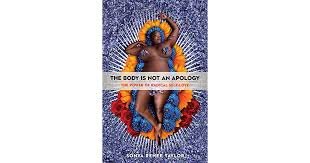Note to listeners: This episode was recorded on Saturday March 14. Some information may have changed by the date this was published. Unfortunately, due to timezone issues, Annie was unable to join the discussion.
EQ: What has this pandemic revealed about issues of equity and access in education?
Guests: Aaron Shelby, Secondary Curriculum Coordinator, and Amy Daraiseh, Learning Support at the American School of Abu Dhabi.
Weeks ago, educators in East Asia transitioned to virtual teaching, offering synchronous (live) and asynchronous learning opportunities for students kindergarten through university level. Many international teachers kept tabs on this progression, perusing social media for what was inevitably coming to all of us. Concerns about teaching students with special needs, supporting English language learners, and managing poor internet connection across the globe were hot topics on many message boards. For better or for worse, it seemed the US was living blissfully in denial of the impending virus that would sweep the nation and ask educators to re-examine what it means to teach and to learn in the midst of a pandemic.
To get some perspective on the logistics of remote learning, listen to the conversation “Teaching Online During the Covid-19 Outbreak” Nate Bowling had with two teachers, Jordan Moog and Michele Curley, from the American School of Abu Dhabi.
In this episode, two of Hope’s favorite colleagues join her for a discussion on the range of equity issues rising to the surface in educating in the “new frontier” of the coronavirus. We discuss special education accommodations, tech access, wrap-around services (food, childcare, medical care), and how to provide social-emotional support to students in a time of crisis. Our conversation has a global framing but Hope weaves in Washington specific data and concerns in order to keep listeners grounded in something more familiar.
Learn about what’s happening in WA state:
Around the World:
Champagne & Real Pain:
🥂 to Educator Temporary School Closure for Online Community and all the educators making themselves vulnerable to share ideas.
🥂 Naomi Campbell for telling us to wipe down our seats
🥂 American Community School administration and colleagues
👎🏻 to the ashholes who are hoarding TP and being butts to others during a time of crisis
👎🏻 those who are still traveling which puts others in danger
Do Your Fudging Homework:
Hope: keep sharing your resources, bringing hopeful in the midst of chaos
Amy: channel positive energy and spread it to those around you
Aaron: be good to yourself and check in on your neighbor
Follow our guests on the socials: Aaron Shelby (Twitter) Amy Daraiseh (Twitter)









